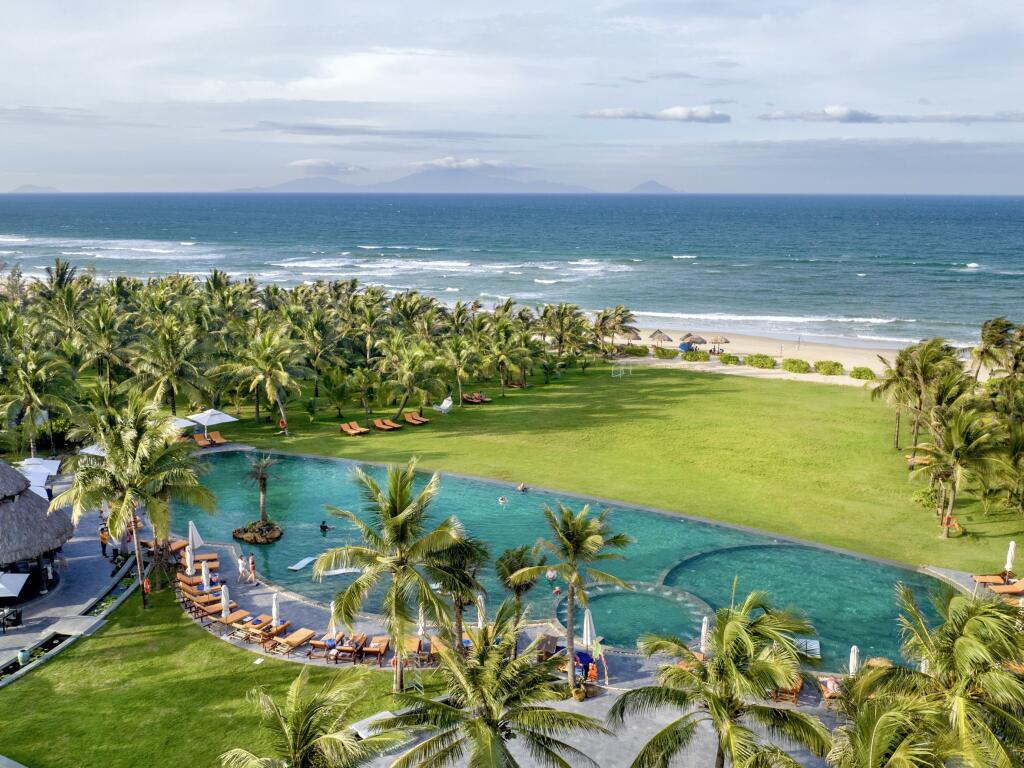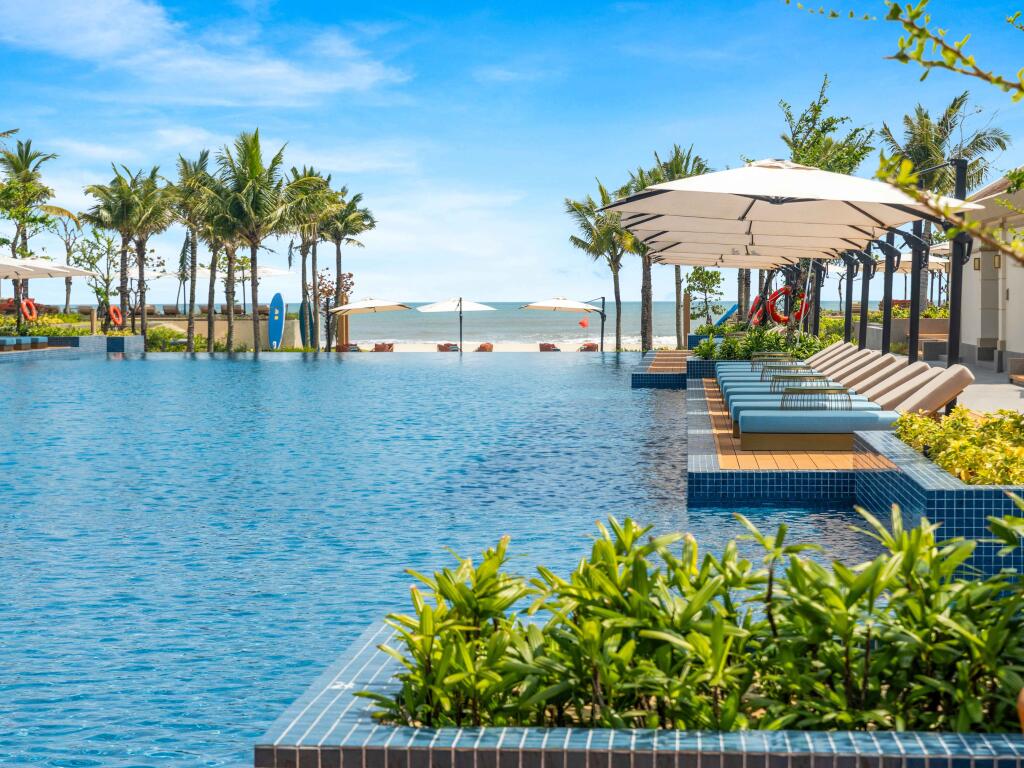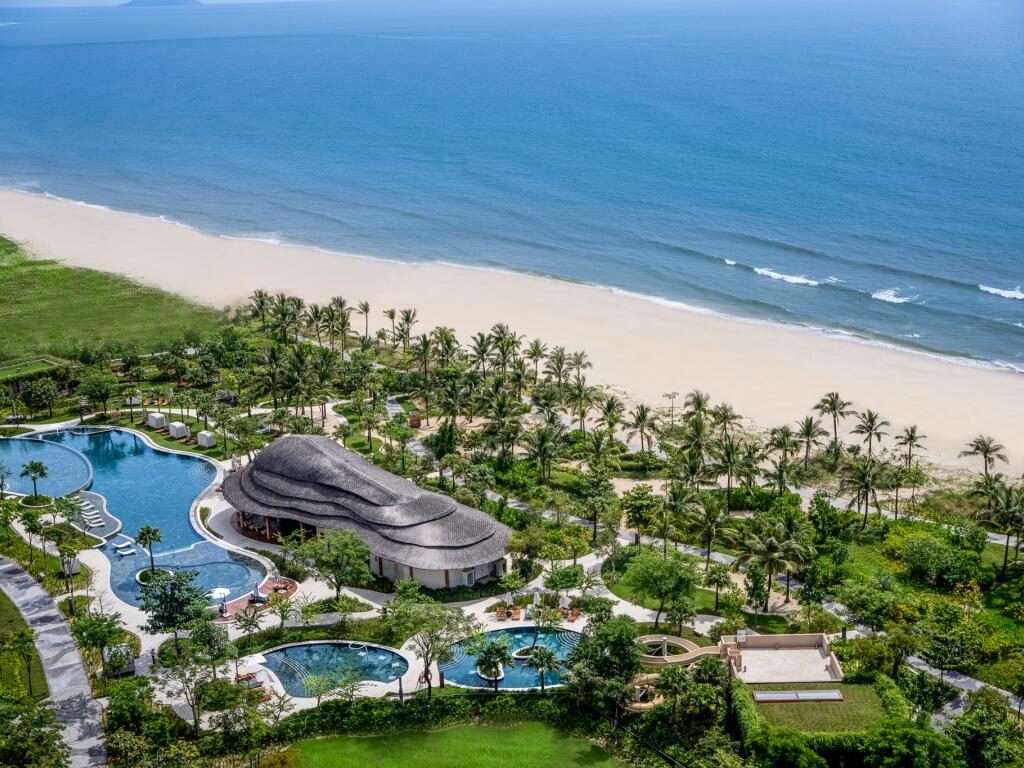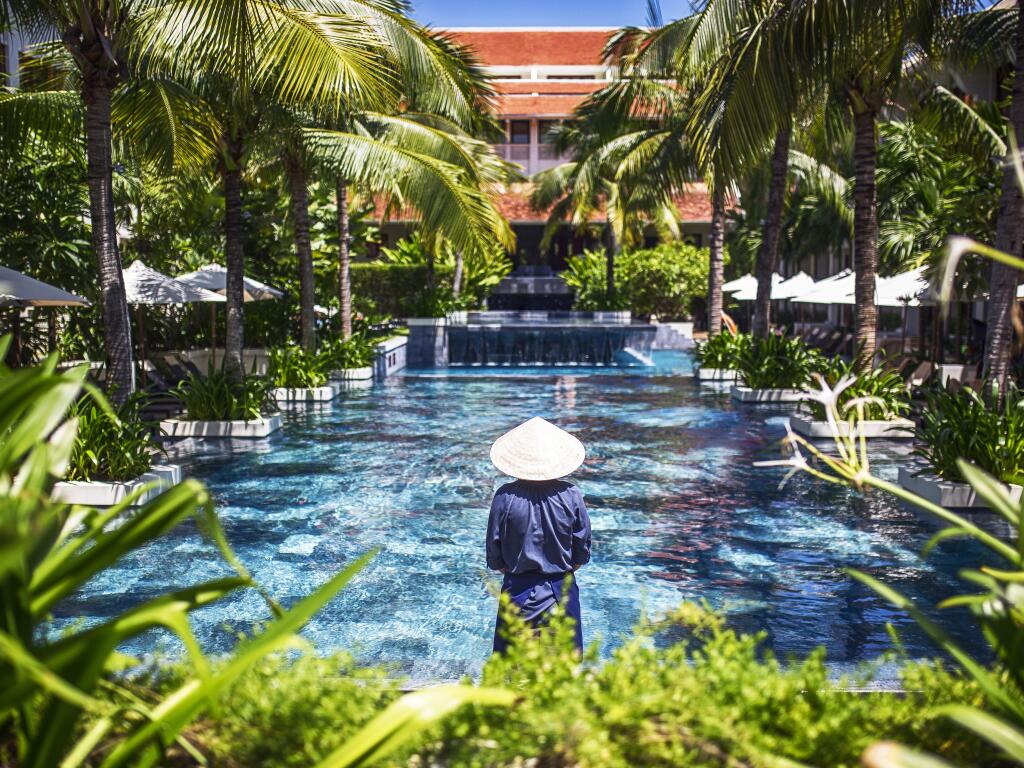Know Before You Go FAQs
Whether you're exploring bustling Ho Chi Minh City, cruising Ha Long Bay, or wandering the lantern-lit streets of Hoi An, it's always good to know the basics before you go. Here are the most common Vietnam travel questions.

Best Time To Visit Vietnam
Plan your Vietnam adventure around what matters most to you. Discover the best times to visit for sightseeing, beaches, and cultural festivals.

Getting To Vietnam
Whether you're flying from Australia for a city escape or a coastal retreat, find out how easy it is to reach Vietnam's top destinations.
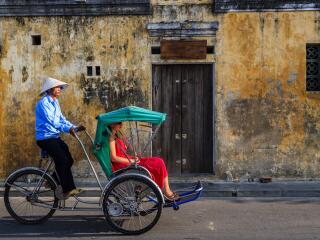
Getting Around Vietnam
All you need to know about travelling within Vietnam. From domestic flights to trains and scenic road trips, plan your journey with ease.
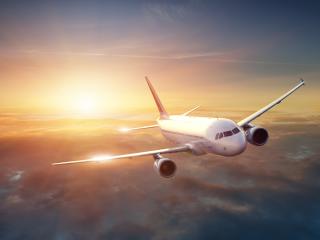
Flights To Vietnam
Everything you need to know about flying to Vietnam, including major airlines, routes, and travel tips for your next holiday.
1. Entry & Visa
Do I need a visa to enter Vietnam?
Most travellers require a visa to enter Vietnam. Australian passport holders can apply online for an e-visa, valid for stays of up to 90 days. Applications must be made through the official government website, and passports need at least six months' validity from the date of arrival.
Do I need to carry my passport around Vietnam?
While travelling in Vietnam, it's best to keep your original passport safe at your accommodation and carry a paper or digital copy when out exploring. Hotels will require your passport at check-in, and police or transport officials may occasionally ask for ID, so having a copy makes things easier. To avoid delays at the airport, print your e-visa approval letter before you travel.
For the latest travel advice, check smartraveller.gov.au or vietnamembassy.org.au
2. When to Visit
When is the best time to visit Vietnam?
Overall, Vietnam is a year-round destination, with the best time to visit depending on your travel plans. Spring (March-April) and autumn (September-November) generally bring the most reliable weather, offering mild temperatures, lighter rainfall, and beautiful scenery across much of the country. No matter when you travel, you'll find breathtaking landscapes, warm hospitality, and endless opportunities for adventure.
Are there any public holidays to be aware of?
The biggest holiday in Vietnam is Tet Nguyen Dan, or Lunar New Year, which falls between late January and mid-February. Celebrations last around a week, though the festive spirit often extends longer. Expect colourful decorations, family gatherings, and quieter streets in big cities, while homes and temples are lively with tradition. Many businesses close or reduce hours, and domestic travel peaks, with buses, trains, and flights heavily booked.
When is typhoon season?
Vietnam's typhoon season runs from June to November, peaking August - October. Most storms form in the Pacific Ocean, bringing heavy rains, strong winds, flooding, and occasional landslides. Central and northern regions - including Hanoi, Ha Long Bay, and Sapa - are the most affected, while southern Vietnam generally experiences milder conditions.
For a deeper look at regional climates and seasonal highlights, see our full guide to the best time to visit Vietnam.
3. Money & Costs
What is the currency in Vietnam?
Vietnam's official currency is the Vietnamese Dong ₫ (VND).
In Vietnam's major cities, credit cards are widely accepted in hotels, restaurants, and modern shops, but in smaller towns, street stalls, and local markets, cash is essential. Carrying small notes makes transactions easier, and while ATMs are easy to find, it's worth checking with your bank about international withdrawal fees.
Is Vietnam affordable?
Vietnam is very affordable. While prices may vary slightly depending on the exchange rate, here's what you can expect to pay for:
- Food & Drink: Street food VND 30,000-60,000 (AUD $2-$4), restaurant meal VND 150,000-300,000 (AUD $10-$20) or a famous Vietnamese coffee VND 25,000 (roughly AUD $1.50)
- Local Transport: Taxi ride (2 km) VND 30,000 - 40,000 (AUD $2-$3), motorbike hire VND 150,000 - 300,000 (AUD $9-$18) per day or bicycle hire VND 20,000 - 30,000 (AUD $1-$2) per day.
- Long-distance Travel: Sleeper bus VND 250,000 - 400,000 (AUD $15-$25), domestic flight VND 800,000 - 2,200,000 (AUD $50-$120) or car hire with driver VND 2,000,000 - 3,000,000 (AUD $80-$120) per day.
4. Transport & Getting Around
Is getting to Vietnam easy?
Absolutely! With direct flights from Sydney, Melbourne, and Brisbane, getting to Vietnam is easier than you might think. Most flights land in either Ho Chi Minh City (Tan Son Nhat International Airport) or Hanoi (Noi Bai International Airport), with connections available to other major destinations including Da Nang, Nha Trang, and Phu Quoc. Flight times are generally around 8-9 hours from Australia's east coast, making Vietnam an accessible and popular holiday destination with Aussies.
How do I get around Vietnam?
Getting around Vietnam is straightforward and affordable. In major cities, taxis, rideshare services like Grab, and local buses are widely available. Many travellers don't realise just how far apart some of Vietnam's most popular cities are, so domestic flights are one of the quickest and most practical ways to cover multiple destinations in one trip. These flights connect key holiday destinations quickly and easily, while trains offer a slower and more scenic way to explore regions like Hanoi, Hue, and Da Nang. Private transfers are also a popular choice, particularly when booked as part of your holiday package, to ensure your transport aligns seamlessly with your flights. If you're visiting islands such as Phu Quoc, there are regular ferries and flights available. We can assist you with booking these as part of your itinerary.
Can I hire a car in Vietnam?
Car hire is available in Vietnam, though driving yourself can be challenging due to busy traffic conditions, especially in larger cities. If you'd like the flexibility of private transport, we recommend hiring a vehicle with a driver, which is an affordable and stress-free option. A valid driver's licence, along with an International Driving Permit (IDP), is required if you plan to drive yourself, and you'll also need a credit card for hire arrangements.
Are roads safe for pedestrians?
Generally speaking yes, although crossing the road in Vietnam can be intimidating at first. On Vietnamese streets, traffic doesn't stop for pedestrians; it flows around you. The trick is to move forward steadily at a calm, consistent pace, and the motorbikes will weave around you. Avoid sudden stops or changes in direction, look both ways, and if you're unsure, follow alongside a local. With a little practice, you'll find the rhythm and cross with confidence.
5. Language & Communication
Is English widely spoken in Vietnam?
English is widely spoken in Vietnam's major tourist areas, hotels, and among younger people, but it's far less common in rural regions, which adds to the authenticity of travelling off the beaten path. Learning a few basic Vietnamese phrases is a great way to connect with locals and show respect for the culture.
Common Phrases to Learn:
- Xin chao! - Hello (pronounced sin chow)
- Cam on - Thank you (pronounced gahm un)
- Khong co chi - You're welcome (pronounced kohng kaw chee)
- Bao nhieu? - How much? (pronounced bow nyew)
- Dat qua! - Too expensive! (pronounced daht kwah)
- Toi khong hieu - I don't understand (pronounced toy kohng hee-oo)
- Co - Yes (pronounced caw)
- Khong - No (pronounced kohng)
- Toi can su giup do - I need help (pronounced toy kun soo zoop duh)
6. Electricity, Internet & SIM Cards
What power plugs are used in Vietnam?
Type A: flat pins (like in the USA)
Type C: round pins (like in Europe)
To avoid surprises, pack a universal travel adaptor so you can charge your devices anywhere in Vietnam.
Is the internet good in Vietnam?
Vietnam's internet is fast and reliable, particularly in cities, with free WiFi available in most hotels, cafés, and even buses. For constant connectivity, it's easy and affordable to buy a local SIM card from providers like Viettel, MobiFone, or Vinaphone, which offer convenient 4G data packages.
Can I use my phone and internet in Vietnam?
Buying a local SIM card is the easiest and most affordable way to stay connected in Vietnam far cheaper than using international roaming. The three main providers are Viettel, Vinaphone, and MobiFone, all of which offer reliable nationwide coverage.
Most travellers go for a prepaid tourist SIM or eSIM, as they're simple to set up, flexible, and don't require contracts or local paperwork. Prices usually range from 150,000 to 350,000 VND (around AUD $9-$22), depending on the package.
SIM cards are easy to purchase at airports, convenience stores, and phone shops, where you can compare plans and choose the best deal for your trip.
7. Health & Safety
Do I need any vaccinations to travel to Vietnam?
Before travelling to Vietnam, check with your doctor that your routine vaccinations, including measles and diphtheria, are up to date. Additional vaccines may be recommended depending on your itinerary, such as Japanese encephalitis, rabies, hepatitis and typhoid.
There's no vaccine for some common illnesses like Zika, dengue, malaria and hand, foot and mouth disease, so prevention is key - use insect repellent, wear protective clothing, and choose insect-proof accommodation.
Always discuss your travel plans and vaccination needs with your doctor well before departure. For the latest health and safety advice, visit Smartraveller.
Do I need travel insurance to travel to Vietnam?
Yes, travel insurance is strongly recommended regardless of your age, health status or planned activities. Having comprehensive coverage gives you peace of mind in case of unexpected events such as medical emergencies, trip cancellations, lost luggage, or flight delays.
Medical facilities in Vietnam may require upfront payment for treatment, and costs can be significant without insurance. We recommend choosing a policy that includes cover for medical expenses, hospital transfers, and any activities you may plan to do such as motorbike riding, trekking, or water sports.
Before you travel, always check Smartraveller for the latest government advice and ensure your policy meets your needs.
8. Culture & Etiquette
Is tipping expected in Vietnam?
Tipping isn't required in Vietnam, but it's a thoughtful way to show appreciation for good service. In restaurants, leaving around 5-10% is common, while tour guides, drivers, and hotel staff will appreciate a small tip, just a few dollars' worth in Vietnamese dong is a kind gesture.
Is haggling an accepted practice in Vietnam?
Yes, it is actually quite common, particularly at markets. To bargain successfully, first know the market price by asking locals or searching online, and decide what you're willing to pay. Start with an offer around 40-50% of the asking price, as sellers often quote high, and always give a reason for your counter-offer. Using a few basic Vietnamese phrases shows respect and can make negotiations smoother. If the seller won't meet your final price, politely walk away - this often prompts a better offer. Whether you close the deal or move on, keep the exchange light-hearted, as friendliness goes a long way.
Is there etiquette for using chopsticks in Vietnam?
Chopsticks should be used carefully and respectfully in Vietnam. Always use the narrow ends to handle food and avoid sticking them upright in rice, tapping them on dishes, pointing with them, or digging through shared plates. Take food in one smooth movement and wait for the eldest person to start eating before you do. If your host places food in your bowl, accept it politely. When not in use, rest chopsticks on a holder or tray rather than leaving them in the bowl.
What should I expect when using toilets in Vietnam?
Facilities in Vietnam range from modern Western-style toilets to traditional squat toilets, so it's best to be prepared for both. Carry tissues, wet wipes, and hand sanitiser, especially during longer journeys where amenities may be basic. Many bathrooms feature a handheld bidet spray - use tissues to dry afterwards and place used paper in the bin provided, as plumbing often can't handle flushing paper. Cafés and restaurants are usually reliable options if you need cleaner facilities while out exploring.
9. Local Laws & Regulations
What laws and customs should I be aware of in Vietnam?
Travellers should be aware of key rules to avoid trouble in Vietnam. Visa-on-arrival can be misleading - you must apply online in advance. Driving requires a Vietnamese licence, so it's safer to use taxis, transfers, or hire a driver. Avoid trying a Điếu Cày (bamboo tobacco pipe) as it's extremely strong, and be aware that Vietnam has strict drug laws - cannabis is treated the same as other illegal substances, with severe penalties. Exporting Vietnamese antiques also requires government approval.
What are the traffic rules in Vietnam?
Traffic can seem chaotic but there are rules to follow. Motorbikes must stay under 40km/h in cities and 60km/h on highways, and helmets are mandatory. Always drive on the right-hand side, avoid using phones, and note that Vietnam has a zero alcohol limit for drivers. Larger vehicles like buses and trucks have right of way, so give them space. If you're hiring a motorbike, anything over 50CC requires a proper licence, and the safe limit is two passengers per bike.
10. Holidays & Festivals
What are the most popular festivals & events?
Vietnam's biggest celebration is Tet Nguyen Dan (Lunar New Year) in January or February, marked by colourful firecrackers, vibrant decorations, and lively festivities, though many businesses close for several days. The Mid-Autumn Festival in September or October brings lantern displays, lion dances, and mooncakes, creating a joyful atmosphere across the country. Every two years, the Hue Festival showcases Vietnam's rich cultural heritage with parades, music, dance, and art in the historic city of Hue.
Are there any public holidays to be aware of?
Vietnam's most important holiday is Tet Nguyen Dan (Lunar New Year), held in late January or February. Celebrations last about a week, with colourful decorations, family gatherings, and festive traditions. During this time, many businesses close or reduce hours, domestic travel is extremely busy, and while big cities may feel quieter, homes and temples are full of celebration.
Do holidays affect transport?
During major Vietnamese holidays and peak travel periods, trains book out quickly - so reserve your tickets well in advance. Even outside these times, it's wise to purchase a few days ahead, as same-day travellers will often find the fastest trains and best seats already gone.

